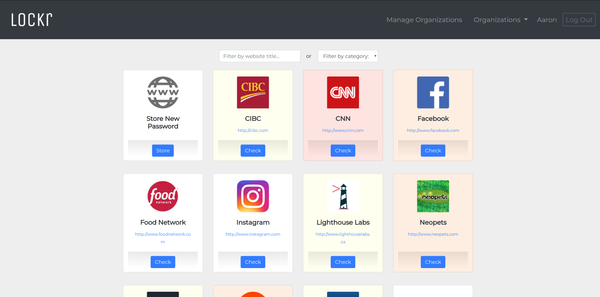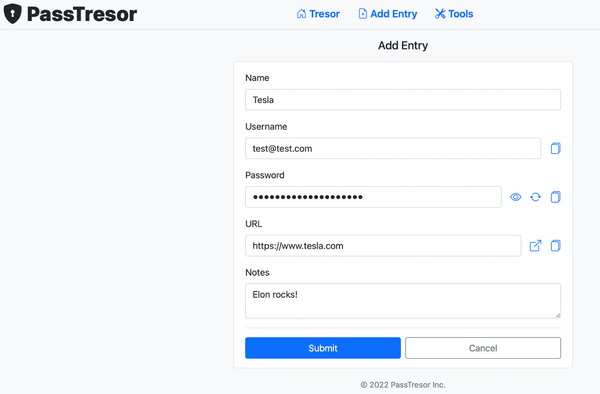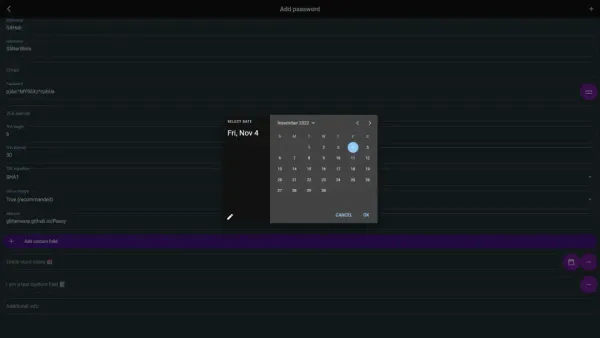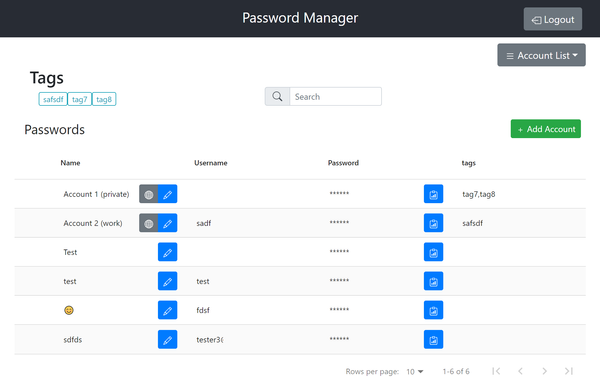8 Uncommon Free and Open-source Password Manager Apps for Individual Users
Table of Content
A password manager is a tool that securely stores and manages passwords for various online accounts.
It eliminates the need to remember multiple passwords by storing them in an encrypted database. Instead, users only need to remember a single master password to access their password vault.
Some password managers include features like a password generator, which is a useful and convenient option for generating secure and strong passwords.
Why Do You need a Password Manager?
- Enhanced Security: Password managers generate strong, unique passwords for each account, reducing the risk of password-related attacks.
- Convenience: Users only need to remember one master password, simplifying the login process.
- Time-Saving: Password managers can automatically fill in login credentials, saving time and effort.
- Secure Password Sharing: Some password managers allow users to securely share passwords with others.
- Password Strength Analysis: Password managers can analyze the strength of existing passwords and prompt users to update weak ones.
- Cross-Platform Syncing: Password managers sync across multiple devices, ensuring passwords are accessible from anywhere.
- Data Backup: Password managers often provide options to back up encrypted password vaults, preventing data loss.
- Secure Password Generation: Password managers can generate complex passwords that are difficult to crack.
Security and Privacy Considerations
- Encryption: Password managers use strong encryption algorithms to protect stored passwords.
- Master Password: Choose a unique and strong master password that is not easily guessable.
- Two-Factor Authentication: Enable two-factor authentication for an extra layer of security.
- End-to-End Encryption: Some password managers offer end-to-end encryption, ensuring that even the provider cannot access your passwords.
- Regular Updates: Keep your password manager updated to benefit from security patches and new features.
- Reputable Providers: Choose password managers from reputable providers with a track record of security and privacy.
- Secure Sharing: If sharing passwords, ensure the password manager's sharing feature uses secure encryption methods.
- Device Security: Protect your devices with strong passwords, PINs, or biometric authentication.
Remember, while password managers are highly secure, it's important to maintain good overall security practices, such as regularly updating passwords and being cautious of phishing attempts.
Here is our selection of the best uncommon open-source password managers for personal use.
1- Lain
The Lain app is a powerful and secure password manager that is completely free and open-source. It utilizes state-of-the-art AES256 and SHA256 cryptography to ensure the highest level of protection for your passwords. With its advanced password generator, you can easily create strong and unique passwords.
Additionally, the app features an automatic lock function that activates when it detects inactivity, giving you peace of mind knowing that your passwords are always safeguarded. You also have the option to configure the app to start with Windows, ensuring that it is always conveniently accessible.
- Operating Systems: Windows
- License: GPL-3.0
2- Heimdallr
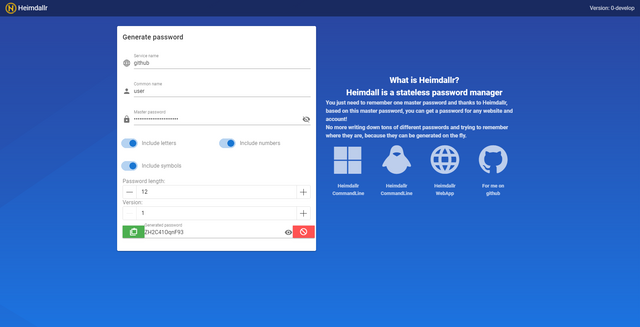
Heimdallr is a stateless password manager/generator that allows users to remember only one master password and generate passwords for other sites based on it, eliminating the need for multiple passwords and syncing issues.
It can be installed easily using Docker & Docker Compose.
- Operating systems: Cross-platform
- License: GPL-3.o License
3- Myna Password Manager
Myna Password Manager confidently utilizes the robust Rijndael algorithm to encrypt passwords with an encrypted key file on the Windows platform. It is highly advisable to securely store the key file on a separate device, separate from the password file.
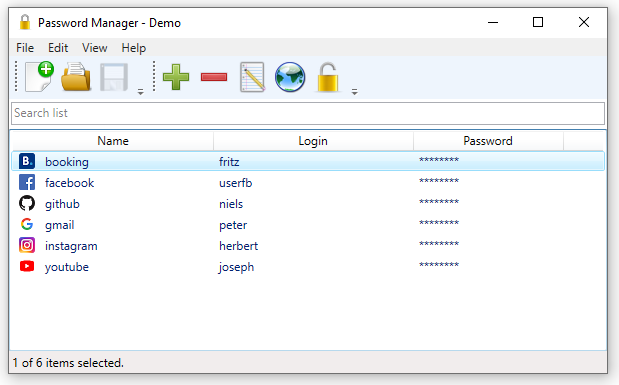
The key file is diligently encrypted using the SHA-256 hash of the master password, ensuring utmost security. Throughout the process, Myna Password Manager minimizes the duration in which plain text passwords are retained in memory, further enhancing the overall security measures.
4- PassLock

PassLock confidently provides a password management solution with built-in password encryption using AES. Your passwords are securely stored on your local machine. The encryption and decryption process is performed using a user-defined key, which is updated with each use. Strengthening the length of the private key will significantly enhance the overall security of your passwords.
Additionally, PassLock offers a password generator that creates strong passwords consisting of a combination of lowercase and uppercase letters, numbers, and symbols, resulting in a 40-bit long password. With PassLock's robust 220-bit AES encryption and infinitely long password generation capability, your passwords are virtually unbreakable.
Furthermore, PassLock's user-friendly Console Based User Interface (CUI) ensures an enhanced user experience.
Key Features
- AES Encryption: PassLock utilizes AES encryption to securely store your passwords on your local machine.
- Custom Key: You can define a user-specific key for encryption and decryption, which is updated with each use for enhanced security.
- Random Encryption Type: PassLock offers various encryption types to choose from, adding an extra layer of randomness to your password encryption.
- Random Password Generator: Generate strong passwords consisting of a combination of lowercase and uppercase letters, numbers, and symbols, resulting in a 40-bit long password.
- Clipboard Copy: Copy passwords to the clipboard for easy and convenient use.
- Custom Path: Specify a custom path to store your encrypted password file.
- Terminal User Interface: PassLock features a user-friendly Console Based User Interface (CUI) for a seamless and efficient user experience.
- Process Monitor: PassLock monitors the encryption and decryption processes, ensuring smooth operation and error detection.
5- KeyPass

KeyPass is a highly secure and reliable open-source password manager designed specifically for Android devices. With KeyPass, you can securely store and manage all your passwords, ensuring that you have full control over your sensitive information.
One of its standout features is its offline functionality, allowing you to access your passwords even without an internet connection, ensuring your data remains protected at all times.
You can read more about its cool features and where to download in here.

6- SpicyPass

SpicyPass is an exceptional password manager that leverages state-of-the-art cryptography and minimalist design principles to ensure secure and effortless password storage. It can be installed on Windows, Linux, and macOS.
Features
- Both a command-line and graphical interface to choose from
- An idle lock that prompts the user for their password after a period of inactivity
- A cryptographically secure random password generator that maximizes entropy
- The ability to copy passwords to the clipboard without revealing them on the screen
- Data is automatically encrypted on disk - no setup required
- Completely offline and free of any potential internet-facing attack vectors
- 256-bit secret key
- Memory safe
- Secure pass store file.
7- pash
pash is a free and open-source password manager that uses GPG and is written in POSIX sh, making it simple to use.
Its features include:
- Written in safe and shellcheck compliant POSIX
sh. - Only
120~LOC (minus blank lines and comments). - Compatible with
pass's password store. - Clears the clipboard after a timeout.
- Configurable password generation using
/dev/urandom. - Guards against
set -x,psand/procleakage. - Easily extendible through the shell.
8- Passwords (Web-based for NextCloud)
Passwords is a passwords manager for NextCloud that offers an easy-to-use web interface, a modern password generator following NIST guidelines, an integrated security check, and is built upon modern standards for fast and secure password management.
Features
- Easy to use web interface
- Modern password generator
- Integrated security check
- Built upon modern standards
- Wide language support
- Server Side Encryption
- Client Side Encryption (E2E)
- Access Protection & Two-Factor-Authentication





